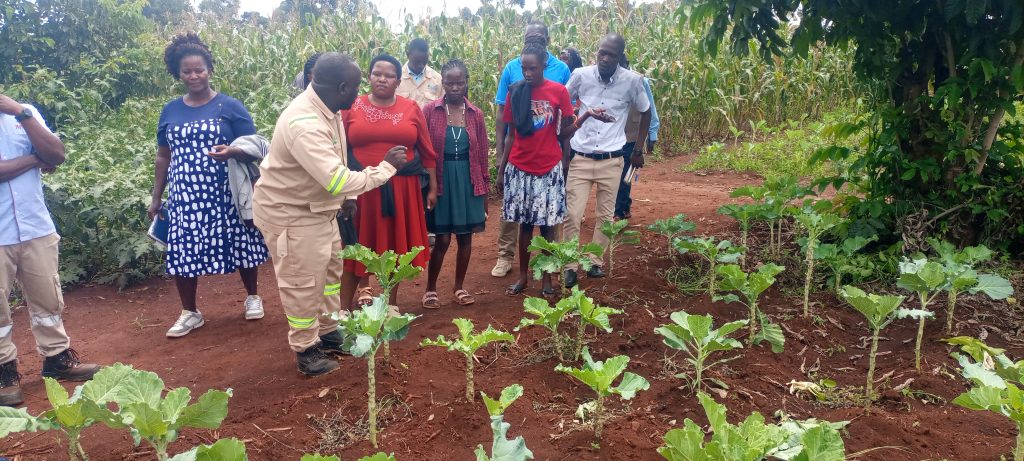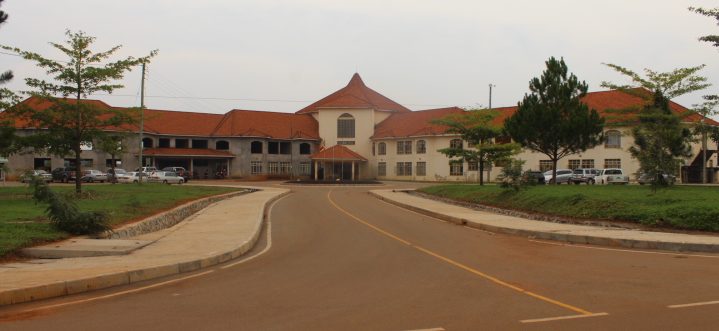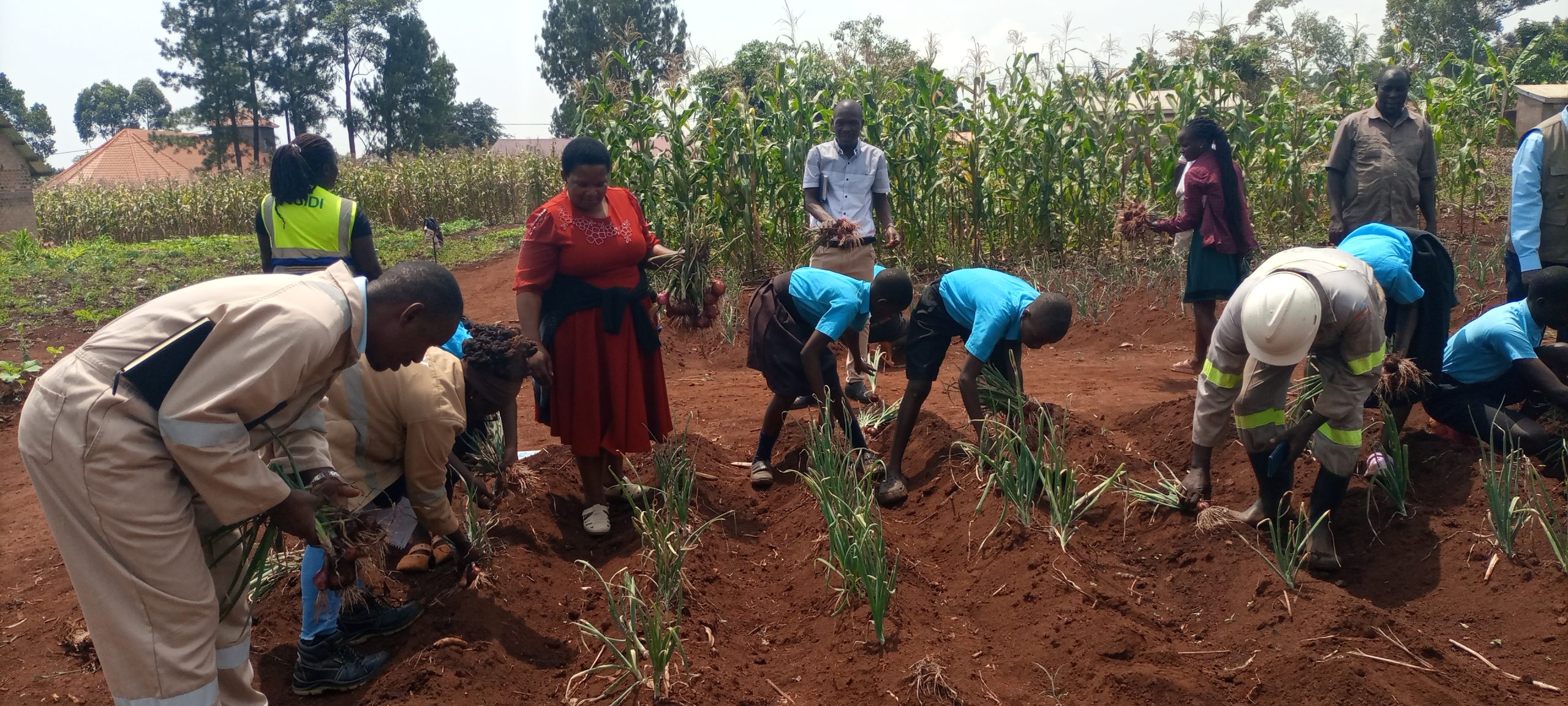At Iguru 1 primary school in Bombo sub county in Hoima district, school demonstration gardens initiative is being used to feed children and fight against school dropout.
At this school, the enrollment shot up from 958 pupils in 2024 to 1064 in 2025.This according to Sudaith Mbabazi the school head teacher, is being attributed to the initiative and innovations in school feeding policy where learners are able to have a centralized lunch at school.
The school feeding policy at Iguru 1 primary school has been beefed up and rejuvenated by demonstration gardens started by Community Integrated Development Initiative-CIDI a non-government organization being supported TotalEnergies EP under the Tilenga project areas in the Albertine Graben.
Mbabazi says that the school benefited from the development project and offered to use its land measuring about 4 acres to implement the model which has transformed the school in a space of one year.
‘‘Our enrollment and daily attendance has been increasing steadily because our children are motivated by the provision of lunch. We are also helping train our parents in the surrounding communities who come to learn agricultural practices at the school demonstration gardens’’ Mbabazi says.
At the school gardens in a well fenced four-acre model, there are several food crops which include; maize, cassava, fruit trees, watermelons, nakati, egg plants and onions among others.
These are harvested and fed to children or partly sold to support the feeding of hundreds of pupils at the school.
Martin Katugume an education officer from Hoima district says that failure to implement feeding policies in schools is partly to blame for poor academic performance and school dropouts. However, with the school demonstration garden initiative at Iguru 1 primary school, Katugume optimistic that having a provision of centralized lunch for pupils at schools, can revert the trend.
‘‘We have been encouraging parents to park food for their children but others don’t. Schools should emulate this project and utilize their land to grow food crops which can be used to feed the pupils’’ Katugume says.
He adds that schools should form young farmer’s clubs where pupils should be directly involved in skills development in agriculture in order to sustain such projects.
‘‘We have got to sustain such projects by encouraging young farmers’ clubs, use of innovations like irrigation and lobbying for more support’’ Katugume.
During a joint monitoring exercise of the CIDI projects on Thursday, Hellen Mulumba the Vice LCV Chairperson for Hoima District said if emulated, demonstration gardens will help on reducing school dropouts, absenteeism and malnutrition cases among children.
‘‘Every school should have a demonstration garden by using the available school land properly. Having such gardens will help schools get enough food and also help learners on gaining agriculture production skills’’ Mulumba said.

Dance Asiimwe the chief Agronomist for CIDI project in Kikuube and Hoima says the three-year project being implemented at Iguru 1 primary school in Hoima and Bugambe Tea Estate primary school in Kikuube district has demonstrated that school feeding can be achieved and supported.
‘‘The project has also supported community participation in learning agricultural practices at the school demonstration garden. We are producing food for the children, pupils are also learning skills in farming and we want all schools to embrace this model’’ Asiimwe says.
CIDI was contracted by TotalEnergies EP Uganda to implement community agriculture initiatives project for livelihood restoration in districts of Hoima, Kikuube, Buliisa,Pakwach and Nwoya in the Albertine region.


